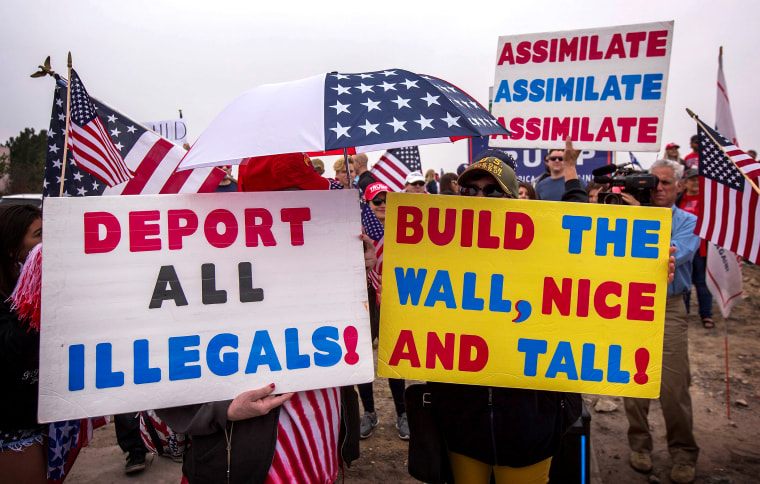The White House's anti-immigrant remarks are taking a toll on Latinos in the U.S., whether they be citizens or undocumented immigrants, a new study concludes.
In a survey of patients who showed up at three urban California emergency departments, researchers found that half of Latino citizens and legal residents as well as three quarters of undocumented immigrants feel unsafe because of comments made by the administration.
One quarter of undocumented immigrants said they were so frightened they delayed going to the emergency room for days, according to the report published in PLoS ONE.
"Statements coming from the administration and the President really do have significant effects on Latino populations," said the study's lead author, Dr. Robert Rodriguez, a professor of emergency medicine at the University of California, San Francisco, and a physician at San Francisco General Hospital. "Not only have they induced fear in undocumented immigrants, but they have also caused a substantial proportion of Latino citizens to have concerns about their safety."
For those who say they'd rather not have undocumented immigrants receiving care at the nation's ERs, Rodriguez points to the downside for all Americans when those who are ill do not get care in a timely fashion.
"Even if you don't believe undocumented immigrants should have healthcare in this country, you have to consider public health as a whole," he said. "An immigrant who delays or doesn't come to the emergency department and has some infectious disease is going to compromise public health in the community."
To get a sense of whether the administration's anti-immigrant rhetoric might be creating a barrier to healthcare access among Latinos, Rodriguez and his colleagues developed a survey to be given to patients coming into the emergency departments of large hospitals in three California cities: Los Angeles, Oakland and San Francisco.
Between June 2017 and December 2018, researchers approached 1,684 emergency department patients, 1,337 of whom agreed to participate in anonymous surveys: 34.3 percent were undocumented Latino immigrants, 36.9 percent were Latino legal residents or citizens and 29.8 percent were non-Latino residents or citizens.
The vast majority of surveyed patients had heard administration statements about measures against undocumented immigrants during the presidential campaign or from President Trump: 95 percent of undocumented Latino immigrants, 94 percent of Latinos who were legal residents or citizens and 87 percent of the non-Latino residents and citizens.
Most of the undocumented immigrants, 89 percent, thought these measures were being enacted now or would be in the future, as did 88 percent of the Latino legal residents and citizens and 87% of non-Latino legal residents and citizens.
Most of the undocumented immigrants, 75 percent, and more than half of the Latino legal residents and citizens, 51 percent, said the statements made them feel unsafe living in the U.S.
More undocumented immigrants, 24 percent — compared with 4.4% of Latino legal residents - said the statements made them afraid to come to the emergency room. And that fear, they said, caused them to delay coming to the ER for a median of two to three days.
Rodriguez points out that these numbers are from Latinos who live in California cities, "all of which are sanctuary-type cities. If there's that level of fear arising from this rhetoric in those cities, we believe the fear level in other places is likely to be a lot higher."
The new study shows the power words can have, said Dr. Albert Wu, an internist and a professor of health policy and management at the Johns Hopkins Bloomberg School of Public Health in Baltimore, Maryland.
"Words can be dangerous and they can even kill when they create barriers to healthcare access," Wu said. "This kind of rhetoric can have a powerful chilling effect that prevents Latino patients from taking advantage of necessary care."
While some people may think it's a good idea to deny healthcare to people who are here illegally, scaring people so much that they delay care could result in higher healthcare costs because the patients are much sicker when they finally do end up in the emergency room, Wu said.
Consider that "there are 58 million legal residents and citizens in the U.S. with Latino heritage, with a subset who may have undocumented members of their households," Wu said. "So the potential effects of this kind of rhetoric could be a lot bigger than you would expect."
Follow NBC Latino on Facebook, Twitter and Instagram.


